Michael Gira (born 19/2/54) is an American singer-songwriter, composer, author and artist. He founded Swans, a band in which he sings and plays guitar, in New York during the late 1970s. Since that time, Gira and Swans have been a major influence in the experimental rock scene and in the 1980s were lorded as the “loudest band on the planet”. Not ones to sit still, however, they evolved continuously, taking on new sounds and influences until grinding to a halt in the late 1990s. Swans reformed and returned as elder statesmen of underground rock music in 2010 and have continued to create music that shakes souls and spin heads ever since. Throughout his career, however, Gira been a significant outlier, striving to create transcendent music of such intensity as to make all else inconsequential. In addition, he is the founder of Young God Records and has also led bands such as Angels of Light, Skin (with Jarboe) and the Body Lovers / the Body Haters.
Gira has recently called time on the present iteration of Swans, whose final album, Birthing is released on 30 May. They will also tour the UK in November 2025.
GUY ODDY: You’ve decided to call time on the present iteration of Swans with your excellent new album Birthing. Are you happy that this is the final recorded monument to this version of a truly iconic band?
MICHAEL GIRA: Thanks very much for your interest in the music. I’m happy to hear you find something in it worthwhile.
It’s just been the usual process for me. Once the record was mixed and had reached the mastering stage, I listened to the album over and over, obsessively, dozens of times, making notes on level and EQ adjustments, and then once it was finished, I listened again and again for pleasure. You could say I found it enthralling. After all, one reason I make music is to be able to listen to it and dream inside it. It’s what I live for. But then I made the usual mistake of listening to it too much, to the extent that it eventually was bled dry and lifeless, like a dead human limb discarded on the side of the road. Now, all I can hear is the flaws, and in fact I hate it! But this is productive for me in the end, because now I’m looking forward to the next thing. Maybe I’ll finally, finally get it right after all the decades of hacking away at the beast.
Now that you are at an age when a lot of people in more traditional jobs will have finished with work, do you see a point when you might consider retiring from music or is it a life-long calling?
My retirement plan is death. I have plenty to keep me busy with three children (one quite young) and the on-going joys and myriad disasters of my personal life, but if I’m honest the times I feel most alive is when I’m doing the work I was meant to do. For so many years it was 100% of the things I cared about, and even if the percentage is less than that now I still wouldn’t know what to do with myself without doing the work. It’s been my means of survival both physically and psychically for too long to ever leave it behind. So, I’m always looking for the next thing, where the music will take me next. I’m hoping at some point to be able to make something that has the ineffable quality of a long, unbroken exhalation.
I imagine that you were very pleased at how well Swans were received when you revived the band for the My Father Will Guide Me Up a Rope to the Sky album in 2010. Have you been surprised at quite how popular the most recent iterations of the band have been since its re-emergence?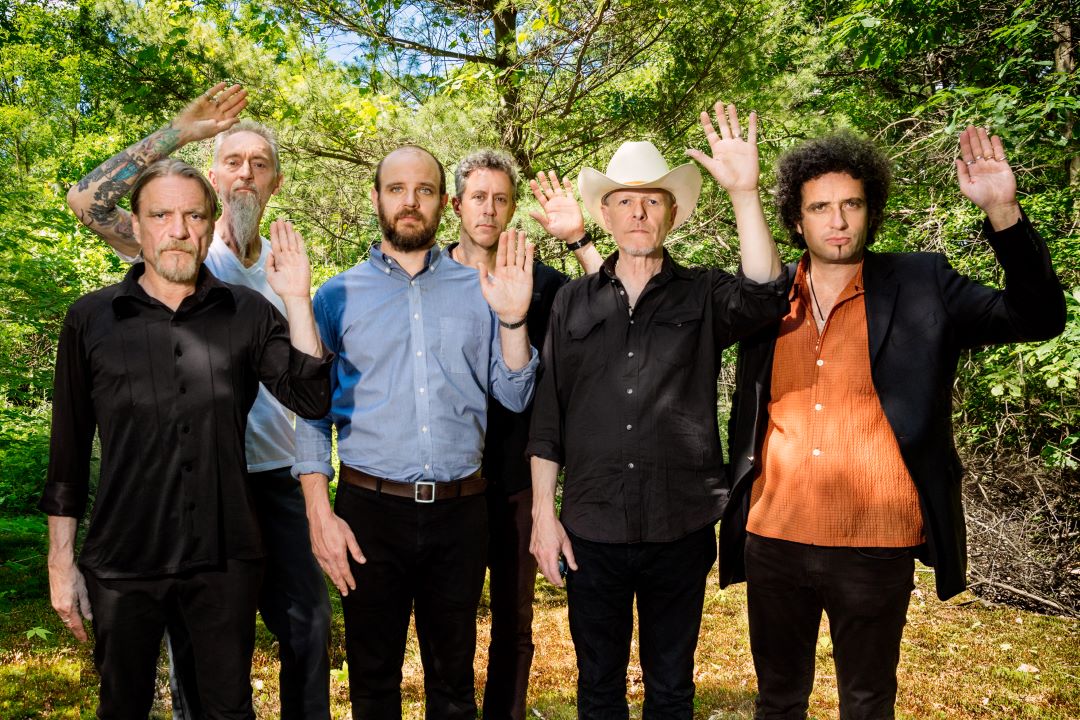 Even though it’s increasingly obvious the Internet is the death of human potential, it has been quite helpful to us, in the sense that a growing cadre of people who seem to have an appetite for what we do have discovered the music of Swans (pictured above) over the years, music that is for the most part not what would be considered accessible. We had no expectations when we set out on this new incarnation, so we were shocked at the size of the crowds at our shows, and at the positive reception both the records and the live performances received. Very unfamiliar ground for me! In any event, the music follows its own course regardless of who’s interested. I’d be fine playing to 10 people. I’ve certainly done it enough times.
Even though it’s increasingly obvious the Internet is the death of human potential, it has been quite helpful to us, in the sense that a growing cadre of people who seem to have an appetite for what we do have discovered the music of Swans (pictured above) over the years, music that is for the most part not what would be considered accessible. We had no expectations when we set out on this new incarnation, so we were shocked at the size of the crowds at our shows, and at the positive reception both the records and the live performances received. Very unfamiliar ground for me! In any event, the music follows its own course regardless of who’s interested. I’d be fine playing to 10 people. I’ve certainly done it enough times.
You’ve worked with many collaborators over the years. Who has been the most enjoyable and productive to work with?
The people with whom I work are close to me and it would be impolitic of me to choose a favourite. However, I miss my friend Bill Rieflin, terribly. He died in 2020. He played on most of the Swans and Angels of Light records from the early 90’s and onward, though he was never officially a member. He was primarily known as a drummer, but he played innumerable instruments with a zealous sense of mischief and improvisation. Whether it was with drums and percussion or piano or keyboards or guitar or voice he always added an element of surprise and heightened feeling. My favourite part of the year was visiting with him in the studio and being afforded the opportunity to bask in his wit and generous intelligence. Losing him was devastating to me. I never played him the music before we’d meet for a session – often lasting a week. He’d hear the song once, then skip off to whatever instrument he deemed appropriate and usually he’d astound me, and I’d suddenly see the music in a new way. I remember one time he erased every third beat of a previously recorded (someone else’s) guitar track, to great effect, another time he played piano with his fists, though he could play the instrument beautifully if he chose. He could pick up an acoustic guitar and play it with sensitivity and fineness or soar with savage, unpredictable intensity on an electric guitar. He sometimes played a ride cymbal with a tiny nail. Back in my drinking days he once collected all the beer cans scattered around the studio, put them in a plastic bag, and played that. Bill played with numerous groups in his life, among them Ministry, Swans, REM, and towards the end, a teenager’s dream, he played with King Crimson, first on drums and then on keyboards. There’s a King Crimson documentary called The Court of the Crimson King that’s available, in which he features prominently, and which I believe is dedicated to him, since he died while it was still in process.
Have you ever found yourself star struck when meeting any of your heroes or influences?
Oh yes, numerous times. In 1969 I was a runaway Hippie kid in Europe. I ended up at a rock festival in Belgium, where various famous art/psychedelic bands of the time were playing. Frank Zappa was there and sat in with Pink Floyd. In my dazed wanderings around the festival, I spotted him at the food tent, eating with a group of friends. I’d listened to the first three Mothers albums hundreds of times. That music was the ultimate for me. I wandered up to the table, stuttering my praises. I think he actually muttered the WC Fields’ quote “Go away, kid, ya bother me!” then turned away and ignored me. I stumbled off, mortified, then disappeared in a hallucinogen-infused mist… It must have been in 1978 when Suicide played LA. They set up right on the floor – no stage. There were, at most, 100 punks in attendance, probably more like 50. The punks hated them. They spit right in Alan Vega’s face, point blank. He’d smear it around, crooning, pushing it into his mouth, hitting himself on the face with his microphone, singing, “Thank you, thank you, thank you…” I thought they were the best thing ever! Of course I approached them afterwards, and they were nice enough, sweet in fact. Then, later, after I’d moved to NYC I saw Suicide again, as well as various side projects Alan would do, at Max’s Kansas City, and I’d always find my way to the dressing room somehow. Again, he was polite, but in short order it was made clear I was intruding, so I’d fade away. But the coup de grace came much, much later, after Swans were well established and we were playing at the same festival. I wandered into what I thought was my dressing room, and there was Alan Vega, sitting in a chair in the empty white room by himself, staring off into space. We assessed each other blankly, then recognition came into his face and I can only describe the look as being one of utter contempt. Not this guy again! I left immediately. We never exchanged a word.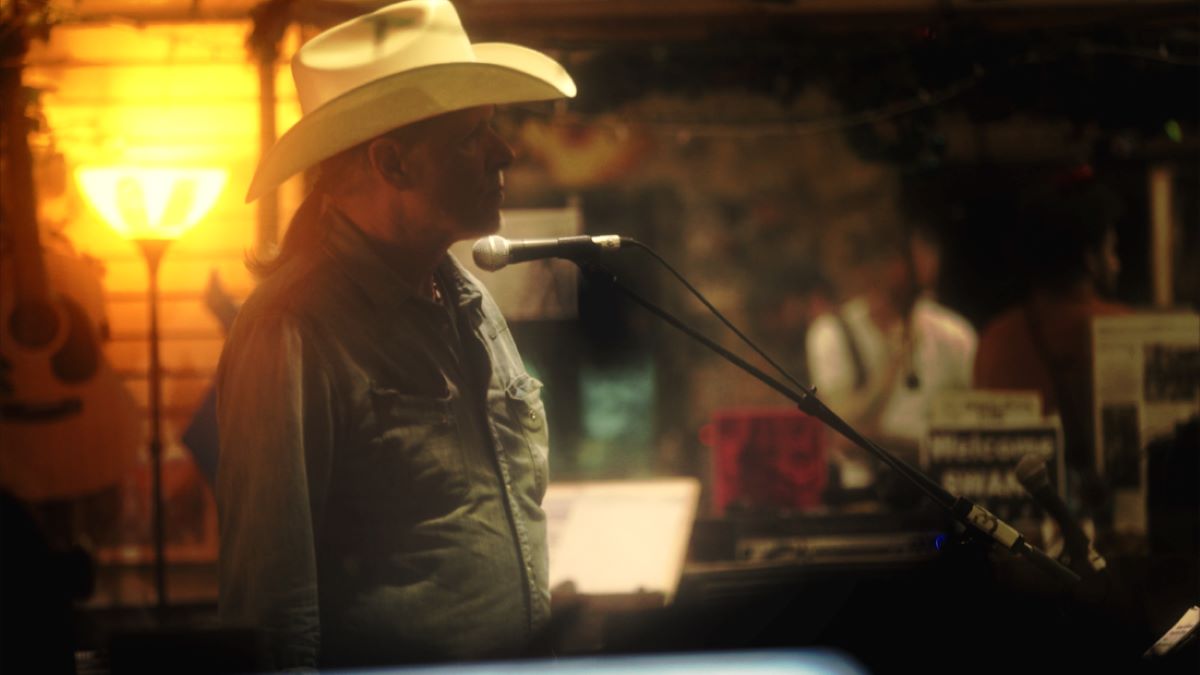 There were numerous other embarrassments through the years, most notably John Cale and Johnny Cash – I shook the latter’s hand, which was like a side of beef, backstage at a stupid music industry “meet and greet” after his show, and again, I was stuttering, but the final nail in the coffin, when I vowed never, ever to approach someone I revered again, was an incident with the legendary Viennese Orgies Mystery Theatre artist, Hermann Nitsch. I’d participated in one of his events in LA in 1978 or so, and it was a sort of pivotal moment for me. So, in the late Nineties in NYC when I saw that there would be a showing of films of his performances at Anthology Film Archives, I made sure to attend. The films were predictably wrenching and gruelling, just great. Later, in the lobby, there he was! He was chatting with a group of older NYC sophisticates. I ambled up rather confidently, as I remember. I waited for an appropriate moment, then extended my hand and said, ‘Herr Nitsch, I participated in one of your performances in LA back in 1978. I...” but he looked at me like paint on the wall, ignored my hand, and hissed, “How nice for you,” and turned away. Gads. Never again!
There were numerous other embarrassments through the years, most notably John Cale and Johnny Cash – I shook the latter’s hand, which was like a side of beef, backstage at a stupid music industry “meet and greet” after his show, and again, I was stuttering, but the final nail in the coffin, when I vowed never, ever to approach someone I revered again, was an incident with the legendary Viennese Orgies Mystery Theatre artist, Hermann Nitsch. I’d participated in one of his events in LA in 1978 or so, and it was a sort of pivotal moment for me. So, in the late Nineties in NYC when I saw that there would be a showing of films of his performances at Anthology Film Archives, I made sure to attend. The films were predictably wrenching and gruelling, just great. Later, in the lobby, there he was! He was chatting with a group of older NYC sophisticates. I ambled up rather confidently, as I remember. I waited for an appropriate moment, then extended my hand and said, ‘Herr Nitsch, I participated in one of your performances in LA back in 1978. I...” but he looked at me like paint on the wall, ignored my hand, and hissed, “How nice for you,” and turned away. Gads. Never again!
You have performed all over the world, where have you found audiences to be the most receptive to your music throughout the years?
The immediate answer to that question a decade or more ago would have been Eastern Europe and Russia. The audiences were insane, almost terrifying in their enthusiasm, especially when we played Czechoslovakia, Poland and Yugoslavia, back when they were behind “The Iron Curtain.” But those days are gone. Everywhere is more or less the same now, due to the Internet. Everything’s levelled out. People are generally enthusiastic, and we put everything we have into each show, but nothing like those days. I remember early on when Swans had first resumed, we were playing in Moscow. I was backstage Skyping with my young children. The show was way more than sold out, dangerously crowded. I’d go out to adjust a piece of gear before the show and they’d roar for minutes, long after I left the stage. So, I thought I’d show my kids what was going on. I took my open laptop out onto the stage and pointed the screen at the crowd. They all raised their hands in the air and swung their arms about wildly and screamed like lunatics, like crazed zombies about to devour a baby. It scared the shit out of my children.
You’ve also lived in or stayed for extended periods in all kinds of places throughout your life. Where have you found to be the most accommodating for the way that you wanted to live your life?
Absolutely nowhere. I’m never comfortable where I am. I can live in a place for a couple years, but then my natural instinct is to get away, just run. It’s what I’ve done all my life: leave. Now, of course, I have a family, people who depend on me in many ways, but I’m always angling, much to the consternation of my wife, to go somewhere else.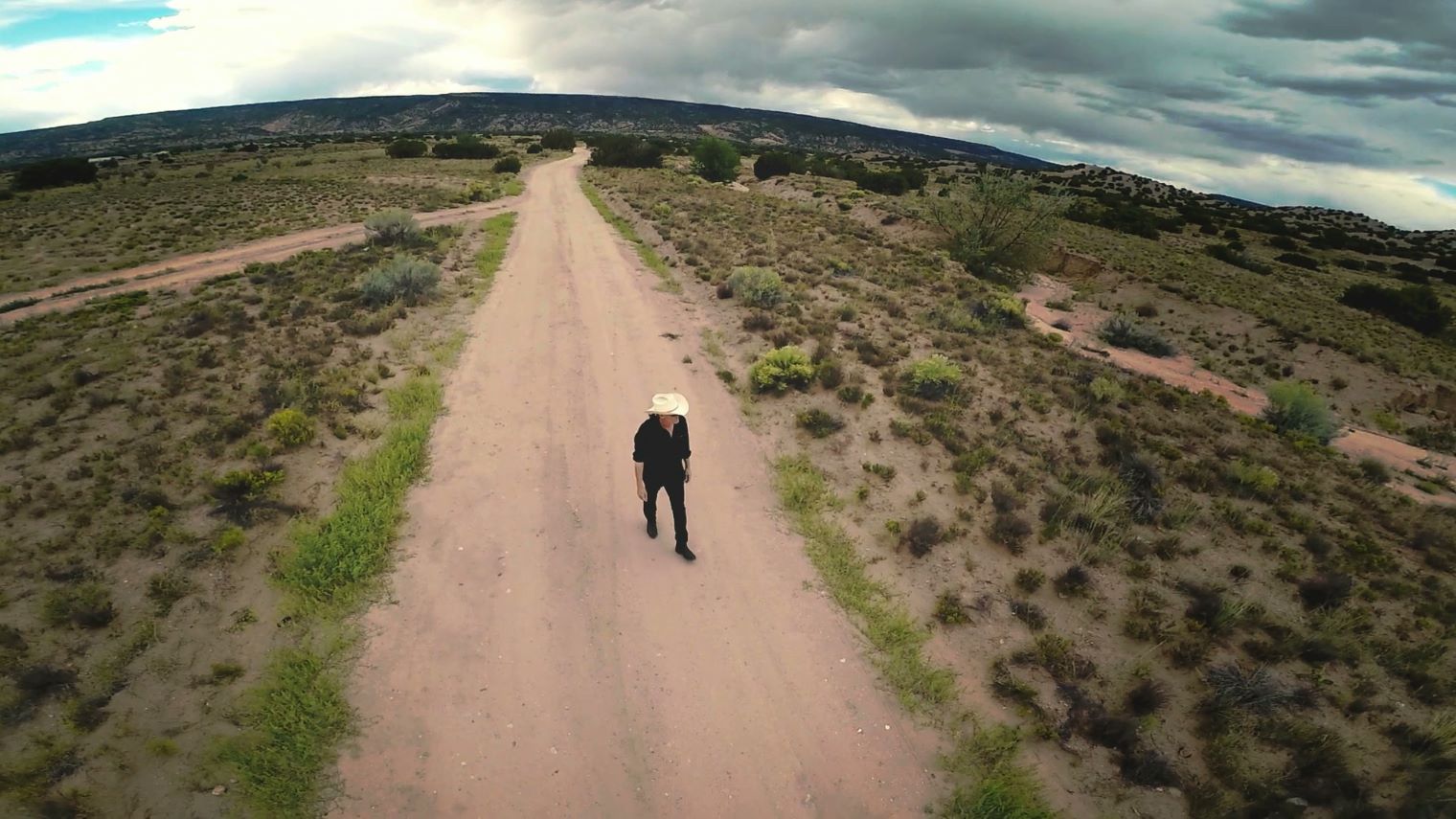 Do you find yourself creating art – your writings, visual art and music – naturally, all the time, or do you have to make time to sit down and fully concentrate on the process, without any interruptions?
Do you find yourself creating art – your writings, visual art and music – naturally, all the time, or do you have to make time to sit down and fully concentrate on the process, without any interruptions?
I need privacy and silence to work, and those opportunities are less over the years. On tour, other than onstage, I’m too exhausted and brain dead to write, so I just read and sleep, that’s it. At home, I manage to carve out time when I can. Due to my age and experience, I suppose, I have less of a sense of urgency about it, and it happens when it happens. It’s enough. The best creation happens in the liminal state between dreaming and waking, and I’ll formulate whole long pieces of music or writing, and I’m excited about it, like the old days, but then I later forget all about it or tell myself I’ll get to it at some point, but I rarely do so. So, it goes.
What music do you listen to for your own pleasure these days?
I rarely listen to music. My ears, and the part of my brain that processes sound, are usually exhausted, and music feels like a personal attack on my autonomy. But in the rare instances where I have a mental space available for music I find myself listening to Diamanda Galas, who is, in my view, a truly great artist, though it takes commitment and patience to really experience her work, as well as Scott Walker, Nina Simone, John Cale, Alice Coltrane, Nico, and of course, always, Led Zeppelin.
Are you pleased with how you and Swans were represented in Marco Porsia’s documentary film Where Does a Body End? (pictured above) and Nick Soulsby’s book Sacrifice and Transcendence? Or are you keen to write an autobiography at some point to set the record straight?
My 15-year-old son keeps bugging me to write an autobiography, mainly so he can have, in some form, the events of my life written down, for when I’m gone, I suppose. He seems to think there’s something special about my life, but I don’t think so. Maybe I’ll write him an outline. But writing a book about myself would be vain and ultimately embarrassing to all concerned. The work is what matters. I’m happy that Marco and Nick found the work important enough to document in some way. Did they get it right? Of course not, but I trust that their intentions were genuine. But anyway, my sincere hope is that people find something of value in the music itself, some sort of comfort, and that’s enough. The verbiage around it doesn’t matter.

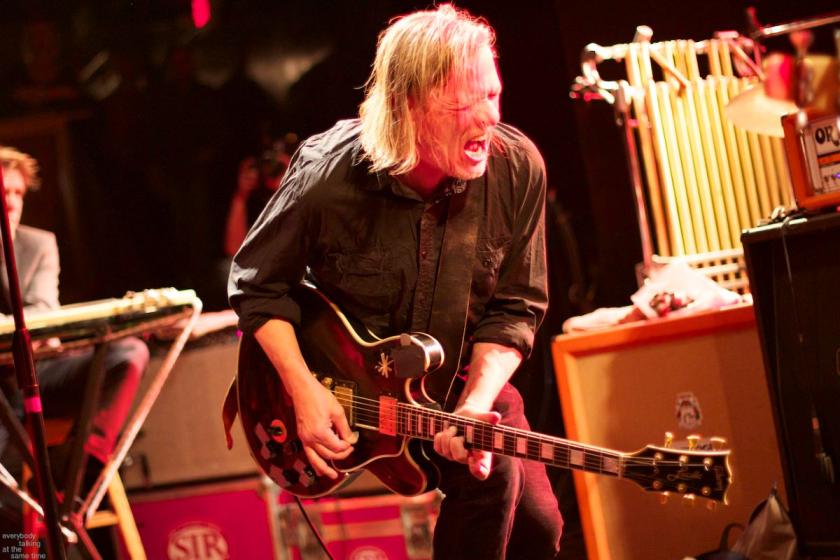










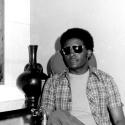
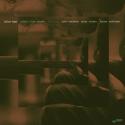
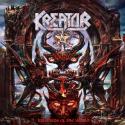
Add comment